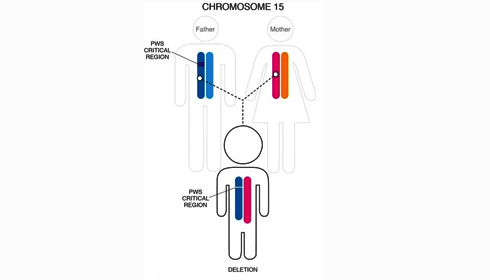
Prader-Willi Syndrome (PWS)
Prader-Willi Syndrome (PWS) is a rare genetic disorder that affects people from birth. It's named after the doctors who first described it. This syndrome can lead to various physical, mental, and behavioural challenges throughout a person's life.
Prader-Willi syndrome is caused by a problem with certain genes on chromosome 15. Normally, we inherit one set of chromosomes from each parent, but in PWS, some of these genes are missing or not functioning properly. This can result in a range of difficulties, particularly those related to appetite regulation and physical development.
Causes
The specific cause of Prader-Willi syndrome is related to genetic abnormalities on chromosome 15. These abnormalities can occur randomly or be inherited. When a person inherits the chromosome with the missing or altered genes from only one parent, it can lead to PWS.
How does Prader-Willi syndrome affect people?
The missing or abnormal genes on chromosome 15 affect the hypothalamus, a part of the brain that plays a crucial role in regulating hunger and other basic functions. This disruption causes a constant feeling of hunger, which can lead to overeating and obesity. Additionally, individuals with PWS may face challenges in muscle tone, intellectual development, and social skills.
Symptoms:
Treatment:
While there is no cure for Prader-Willi syndrome, treatment focuses on managing symptoms and improving the individual's quality of life. This may include:
A comprehensive and multidisciplinary approach involving healthcare professionals, educators, and family support is essential to providing the best care for individuals with Prader-Willi syndrome.
Some of the people who broke the glass ceiling and excelled in their chosen field despite suffering from Prader-Willi syndrome include Harvey Price, reality TV star, Chris Burke is an American actor and musician. Susan Magdalane Boyle, a Scottish singer; Jamie Brewer, an American actress and model; Sarah Gordy, a British actress; Lauren, an American actress, producer, advocate, and comedian; Zach Anner is an American comedian, actor, and writer; David Lynch is an accomplished American filmmaker and artist.